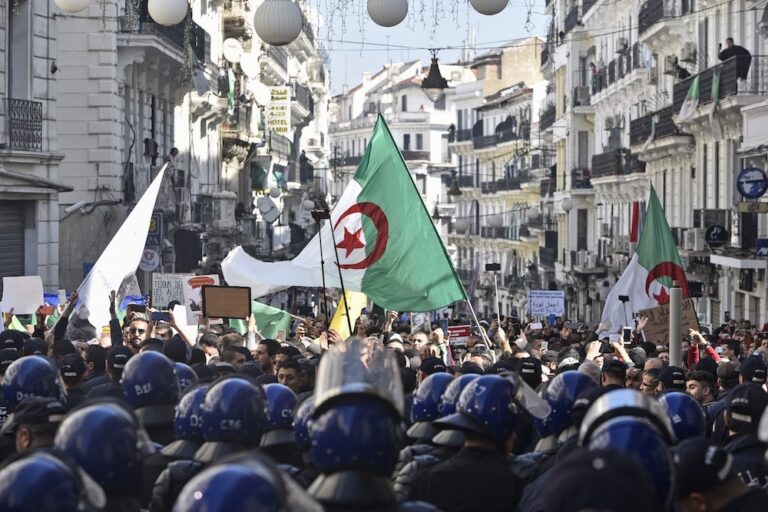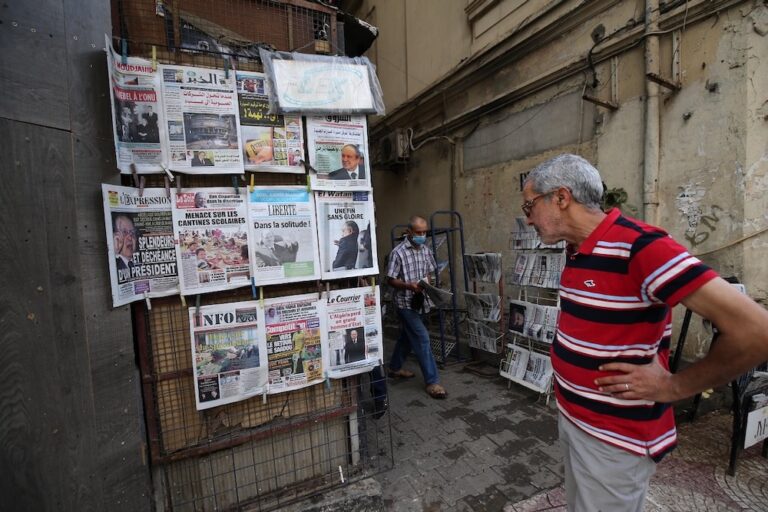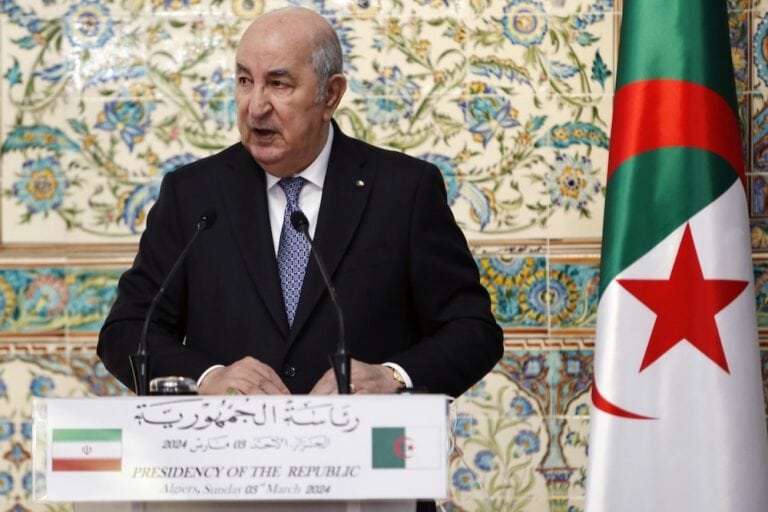(IFJ/IFEX) – The following is a 24 June 2004 IFJ press release: Media Crisis In Algeria: International Action Plan Over Jail Terms and New Threats to Press The jailing of two Algerian journalists, Mohammed Benchicou, publisher of the daily newspaper Le Matin and Hafnaoui Ghoul, a journalist and human rights activist, could signal the start […]
(IFJ/IFEX) – The following is a 24 June 2004 IFJ press release:
Media Crisis In Algeria: International Action Plan Over Jail Terms and New Threats to Press
The jailing of two Algerian journalists, Mohammed Benchicou, publisher of the daily newspaper Le Matin and Hafnaoui Ghoul, a journalist and human rights activist, could signal the start of a wave of attacks on independent journalism following the recent re-election of President Bouteflika warned Algerian and international media leaders in Brussels today.
A delegation of media leaders from Algeria and international journalists’ groups called for an international action plan to counter what they see as a politically-motivated campaign by Algerian politicians to deal with opposition newspapers and opinions in the aftermath of the election.
Among the proposals is a decision by the International Federation of Journalists to relaunch its media crisis centre in Algeria, which was set up in the mid-1990s to assist journalists in the midst of a murderous terror campaign by fundamentalists who targeted journalists among other professional groups. At that time, almost 100 journalists and media staff were killed.
The latest crisis arises from actions against the country’s lively private press, which is often critical of the authorities. Benchicou was condemned to two years in jail for a foreign currency offence, which press freedom groups are convinced is an excuse to penalise a persistent critic of the government, and Ghoul was sentenced to two months for “defamation and outrage” after an interview he gave to Le Soir d’Algérie about the human rights situation.
“We have to build a new alliance of solidarity between Algerian journalists and their colleagues in Europe and around the world,” said Aidan White, General Secretary of the IFJ and chair of the discussion. “These latest actions must be challenged, our colleagues must be set free and the government must respect international standards of press freedom.”
The meeting agreed to seek support for a permanent structure, which will monitor the progress of press freedom violations and intimidation against journalists in Algeria, and to appeal directly to the European Union to protest against repressive measures taken by the Algerian authorities against the freedom of the press in Algeria. The meeting noted that the actions against journalists flout agreements signed between the EU and Algeria.
“We must develop an international action to defend press freedom in Algeria,” said White. “And that includes being on the spot to respond when these attacks take place.”
The media debate was organised by Journalists at your Service, the Brussels-based alliance of journalists’ groups – the IFJ, the AGJPB/AVBB (Belgian Journalists Union), the International Press Association, the European Journalism Centre and the Brussels branch of the United Kingdom’s National Union of Journalists (NUJ). Among the speakers were Omar Bellouchet, Director of El Watan; Fatiha Benchicou, wife of journalist Mohammed Benchicou; Rabah Abdallah, General Secretary of the Algerian Journalists’ Union, and Zoubir Souissi, head of the Algeria Council of Media Ethics.
The IFJ represents over 500,000 journalists in more than 100 countries


